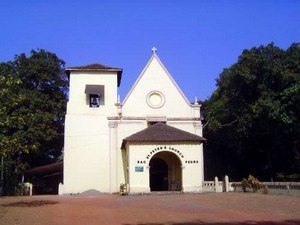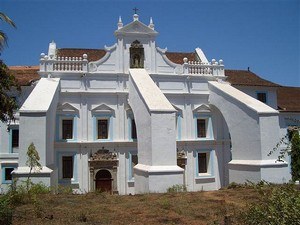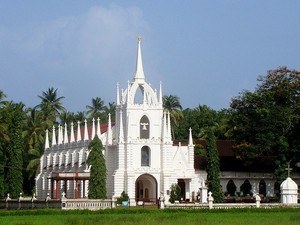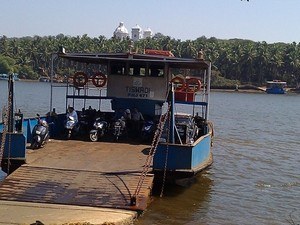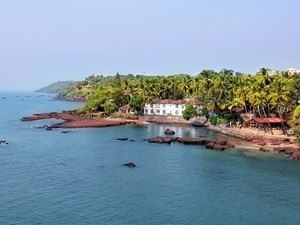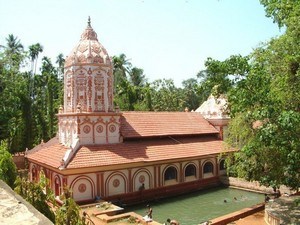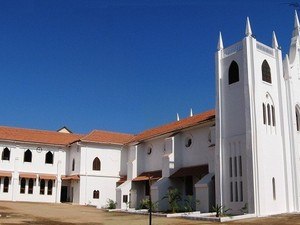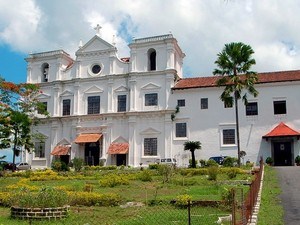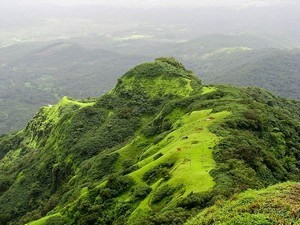SHRI LAIRAIE TEMPLE - SHRIGAO
![]() Pilgrimage
Pilgrimage

 Distance (From Kadamba Bus Terminus): 25 Kms
Distance (From Kadamba Bus Terminus): 25 Kms
 Commonly Visited From: Corjuem Fort (2.5 kms)
Commonly Visited From: Corjuem Fort (2.5 kms)
 Trip Duration (From Corjuem Fort , Including Travel): 30 Mins - 1 Hr
Trip Duration (From Corjuem Fort , Including Travel): 30 Mins - 1 Hr
 Place Location: Shrigao
Place Location: Shrigao
 Transportation Options: Cab / Auto / Rental Bike
Transportation Options: Cab / Auto / Rental Bike
 Travel Tips: This place is usually visited from Corjuem Fort (2.5 kms)
Travel Tips: This place is usually visited from Corjuem Fort (2.5 kms)
At a distance of 25 km from Panjim Kadamba Bus Stand, 50 km from Vasco Da Gama Railway Station and 13 km from Mapusa, Shri Lairai Devi Temple is situated in North Goa.
The temple of Shri Lairai Devi is located at Shrigao in Bicholim Taluka. This temple is dedicated to Lairai Devi. Lairai Devi and Virgin Mary of nearby Mapusa are recognized as sisters by Goan Hindus and Catholics. The architecture of the temple is unique, with a dome and a tall pyramid like tower adorning the top. This temple is a combination of northern and southern art and design of temples. Shri Lairai Saunsthan is one of the oldest and most famous Devasthans in Goa.
The Lairai Devi Temple is famous all over Goa for the Shrigao Jatra held in early part of May. Every year thousands of devotees attend annual feast of deity to witness the walking of 'dhond' through sacred fire called Homakund. The festival begins early in the morning and continues throughout the day. The devotees (dhond) take a bath and walk all the way uphill to the temple to worship the Goddess. Late into the night, as midnight approaches the devotees perform a desperate dance inside the temple. The dance sessions end around midnight. Next a fire is made using a huge pile of wood kept in a large clearing near the temple.
The final and most spectacular part of the Jatra then begins when a specially chosen person races from the temple to the wooden pile and lights a massive bonfire with a blazing torch. The chanting and dancing then continues around the massive bonfire with the devotees touching the holy fire with their sticks. The devotees believe that the closer one comes to the fire, the more devotion and courage is demonstrated.
In the early hours of the morning when the fire has died down, the raking of the coals begins. The devotees await their turn to walk on the holy path of hot coals. Around 4 am the actual ritual starts with the devotees running through the hot coals carrying their sticks and shouting the name of Devi Lairai. Those who have finished their run then remove and throw their flower garlands onto a nearby Banyan tree and return home.




























